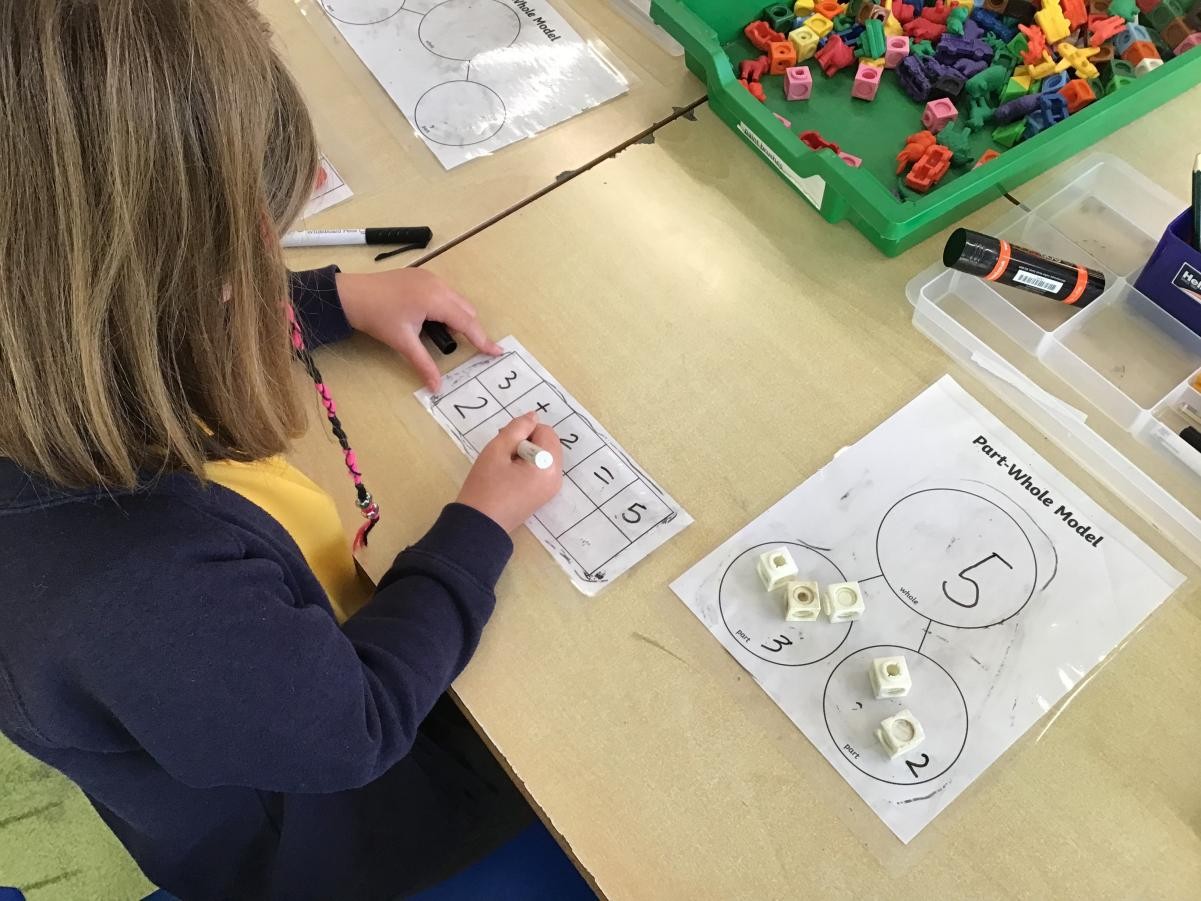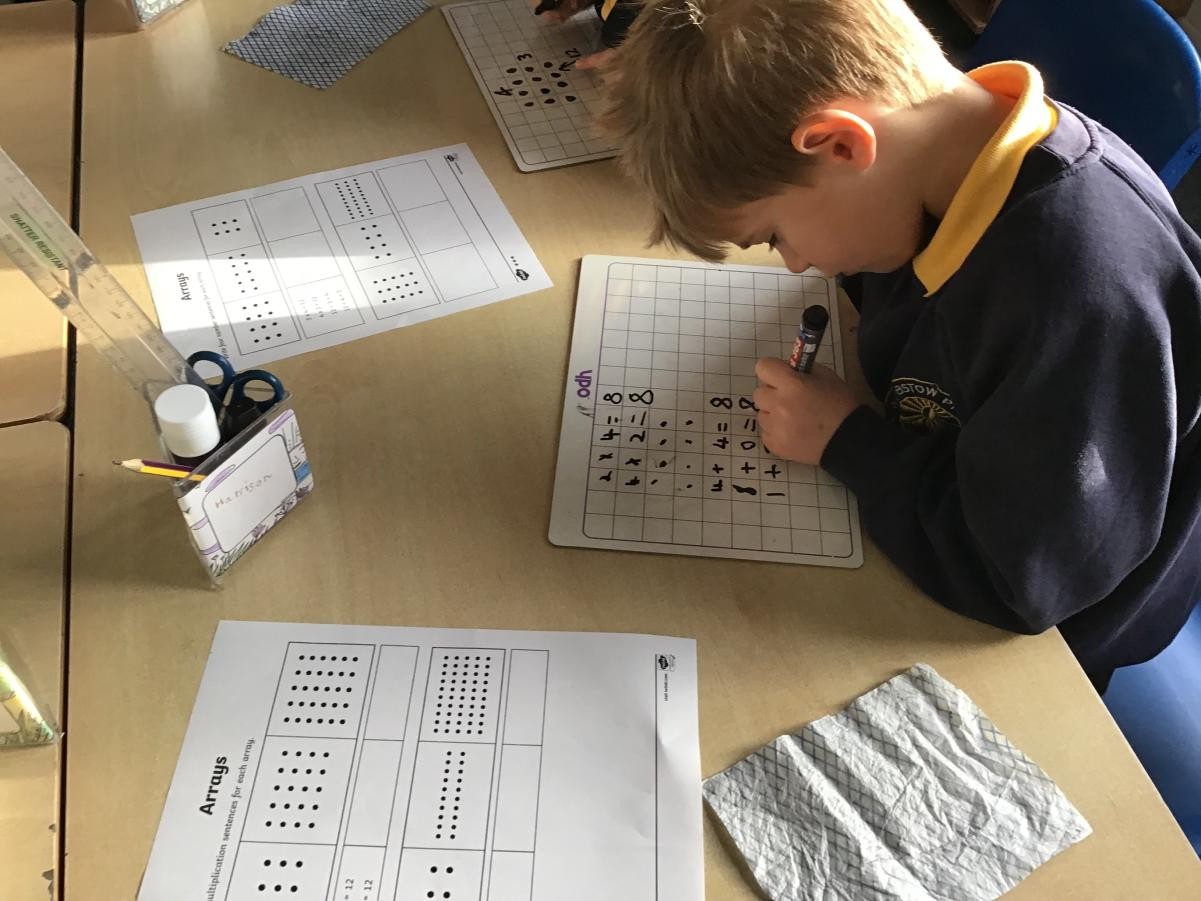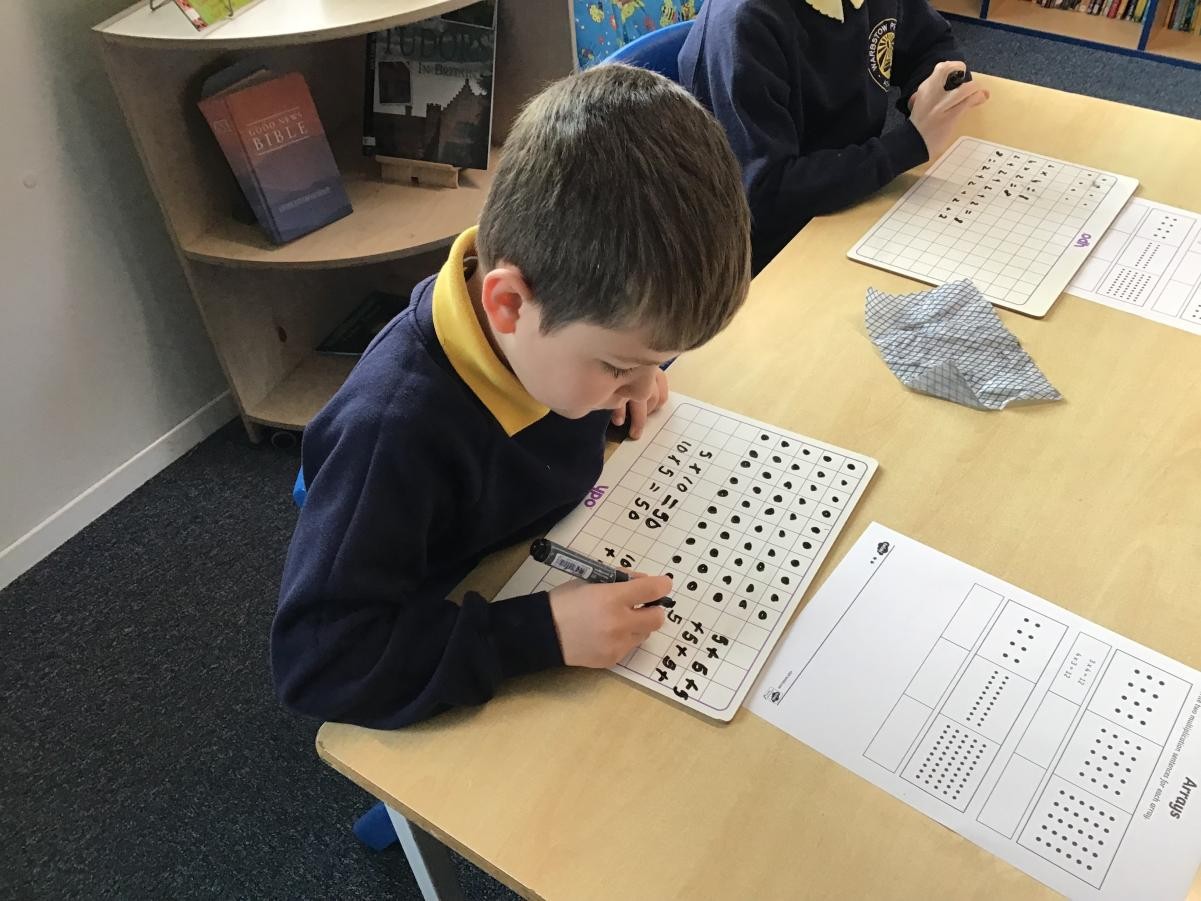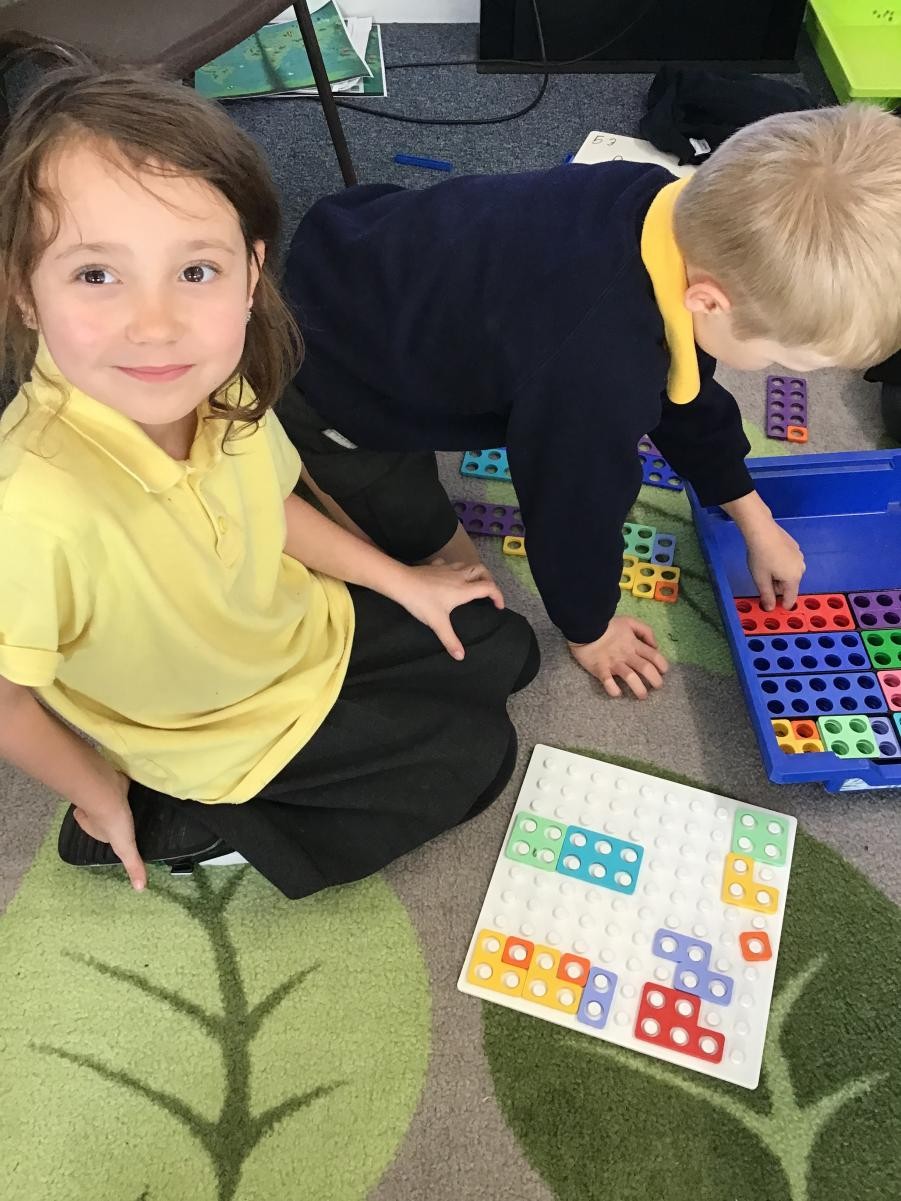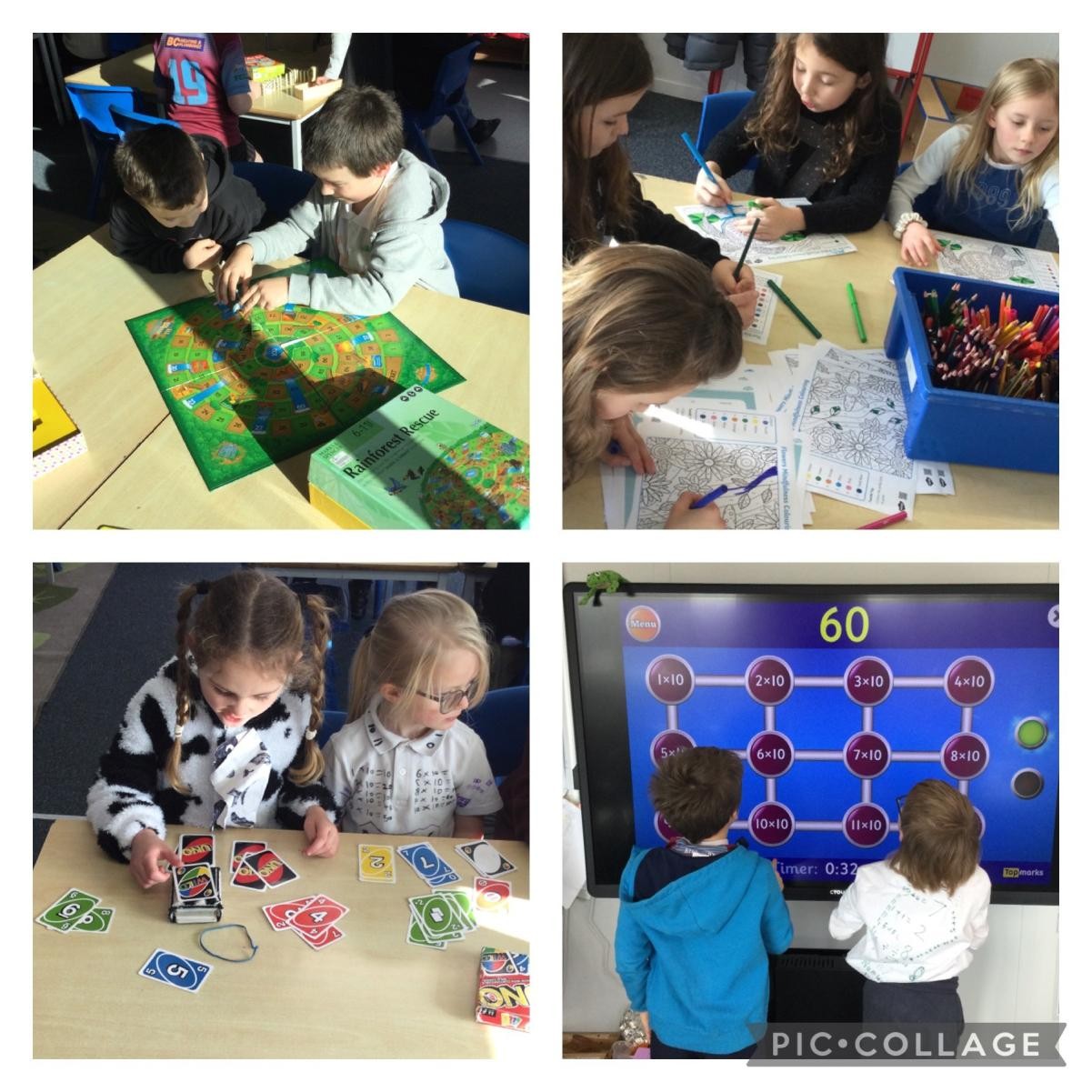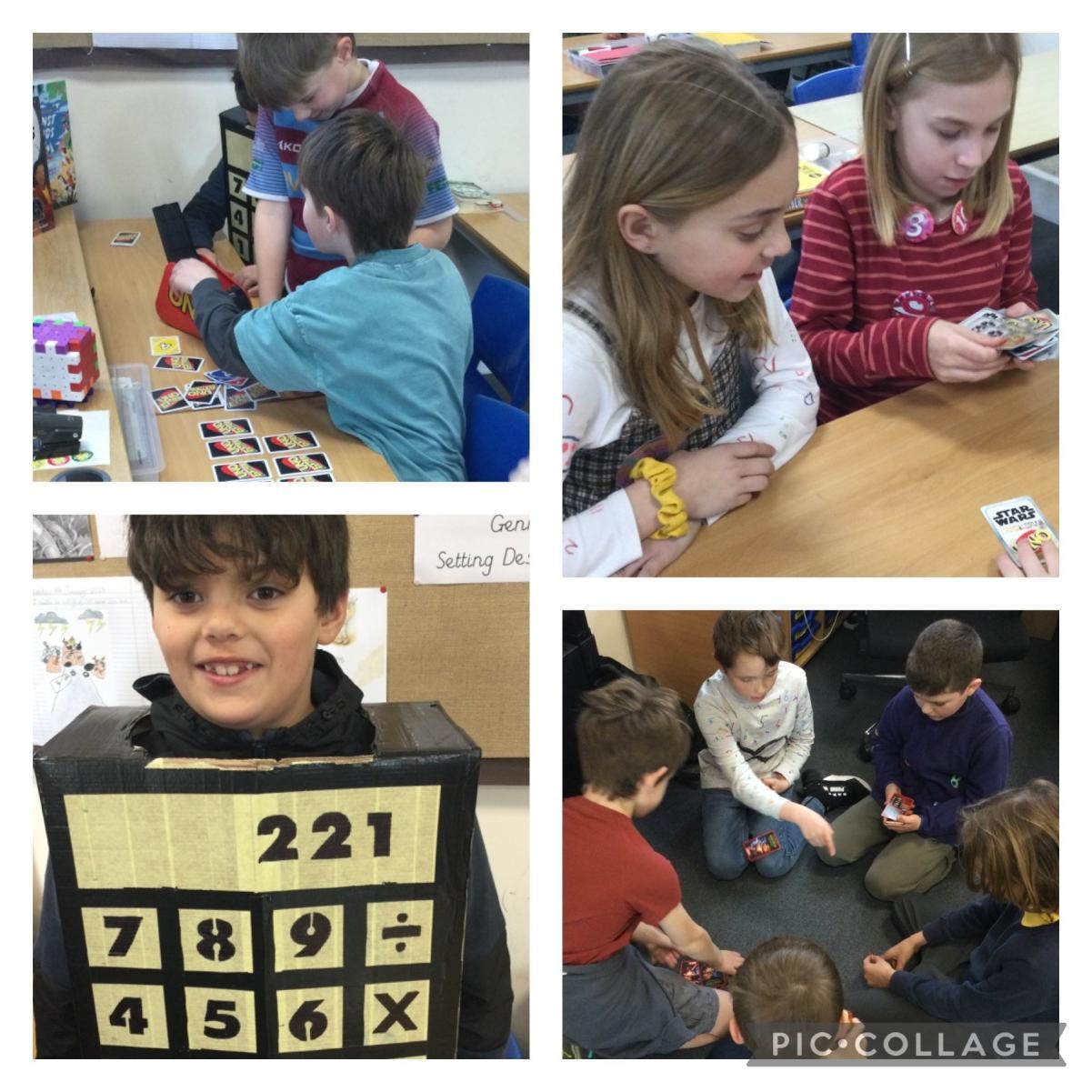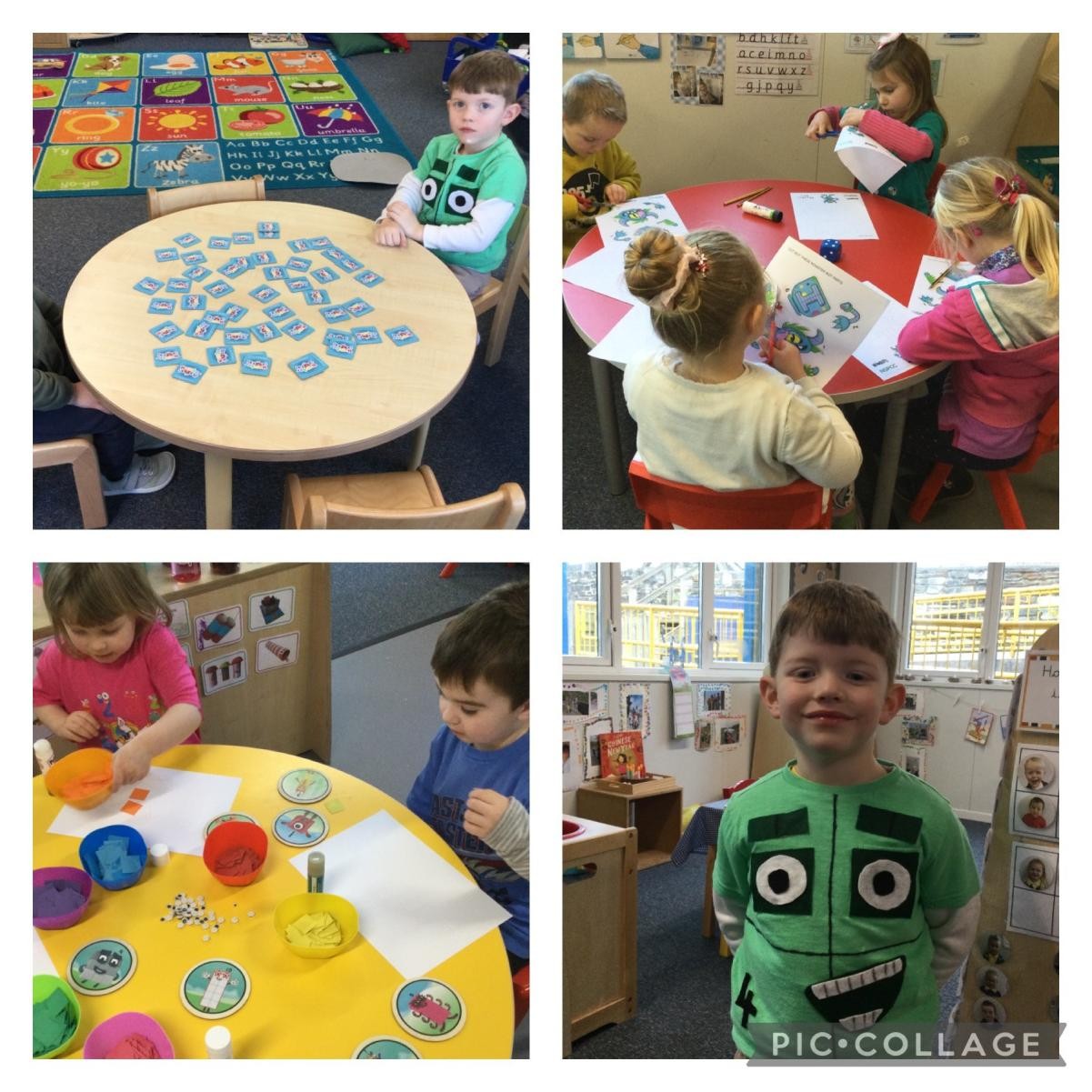“The only way to learn Mathematics is to do Mathematics.”
Paul Halmos
Intent:
At Warbstow, we use a mastery approach to mathematics in order to help children achieve the 3 aims of the National Curriculum and the EYFS Early Learning Goals.
- become fluent in the fundamentals of mathematics, including through varied and frequent practice with increasingly complex problems over time, so that pupils develop conceptual understanding and the ability to recall and apply knowledge rapidly and accurately.
- Reason mathematically by following a line of enquiry, conjecturing relationships and generalisations, and developing an argument, justification or proof using mathematical language.
- Solve problems by applying their mathematics to a variety of routine and non-routine problems with increasing sophistication, including breaking down problems into a series of simpler steps and persevere in seeking solutions.
We use a mastery approach to deliver the teaching and learning of mathematics which supports our pupils in becoming fluent mathematicians who can reason and problem solve in a variety of situations. We want our pupils to have a love of maths with clear links being made to other academic subjects (such as Science and Design Technology) and the real world. As our pupils move throughout the school, we aim for them to develop a continuous, deepening understanding of all areas of mathematics; building on their knowledge year, upon year in order to prepare them for their next stage of education as well as their roles in wider society.
Our curriculum is ambitious and designed to give all pupils, particularly children with SEND the knowledge they need to succeed in life. Learning is adapted to be ambitious yet allows children to develop their knowledge, skills and abilities to apply what they know and can do with increasing fluency and independence. Universal Provision strategies are implemented to scaffold and support learning.
Implementation:
Our mastery approach to the curriculum supported by the White Rose Scheme, which we adapt to meet the needs of mixed year group classes. Each year group is taught within their own year group expectations. A big part of the mastery approach is teaching children to adopt a growth mindset. Our Maths lessons show pupils that anyone can become a master of maths if they put in the effort with the support they need to succeed. All children are encouraged to believe in their ability to master maths and are empowered to succeed through curiosity and persistence. By tackling the same concepts at the same time children progress together as a whole class.
Number is at the heart of our curriculum with daily practice using the Number Sense Times Tables program to ensure fluency of number facts. All lessons start with a re-cap of previously taught skills to ensure children are continually practising. Problem solving and reasoning is embedded in every lesson and variation of questions are used to enable children to apply their knowledge to different contexts. Discussion plays a vital role in all lessons. Children are active in their learning and are encouraged to discuss the how and the why of mathematics with their peers and teachers using mathematical language, vocabulary and stem sentences.
We use the White Rose workbooks to complete fluency activities and then move on to problem solving. Our lessons each day are supported by Maths journals – these are separate books that enable our children to consolidate, become fluent and then problem solve and reason with space to show workings. This enables us to extend learning and support when required. If children finish their task early our ESP system is used – children either ‘Explain to me’, ‘Show me’ or ‘Prove to me’ a given task to ensure skills taught are deepened and embedded.
A variety of assessment approaches are used from observations, marking, white board ‘show me’ and informal assessments. This informs future planning, ensures any misconceptions are responded to and sets the pace of learning appropriately.
EYFS:
In the Early Years Foundation Stage Mathematics is one of the specific areas of learning. Together, the seven areas of learning and development shape educational programmes in early years settings, and all areas of learning and development are important and interconnected. At Warbstow we provide our children with opportunities to develop and improve their mathematical knowledge and skills in a wide variety of interesting ways taking advantage of the large indoor and outdoor environments.
Through use of the Master the Curriculum programme and Number Sense children develop a strong grounding in number to develop the necessary building blocks to excel mathematically. Children should be able to count confidently, develop a deep understanding of the numbers to 10 and count to 20 and beyond. They will notice the relationships between numbers and the patterns within those numbers. By providing frequent and varied opportunities to build and apply this understanding - such as using manipulatives, including small pebbles and tens frames for organising counting - children will develop a secure base of knowledge and vocabulary from which mastery of mathematics is built.
Each adult led activity is carefully planned to introduce new concepts, scaffold children’s learning and assess their understanding. Children develop their mathematical skills and knowledge through continuous provision and adult led activities. Enhanced provision is provided to excite, challenge and reinforce mathematical skills, giving the learning purpose and meaning in the wider context of their lives.
Key Stage One and two:
Key skills: We recognise the importance of establishing a secure foundation in mental calculation and recall of number facts. Each lesson begins with a re-cap, designed to support fluency and a quick recall in all key number facts plus prior learning.
During guided learning: children discover & share new learning with an adult. Hands-on real-life problems help to spark curiosity and provide opportunities for deeper questioning. This is supported through whole class discussion. A small step approach to teaching – providing rigour and scaffold at the same time prepares children for their independent work. Children access a variety of resources and images to develop their understanding through the concrete, pictorial, abstract approach. This will include a variety of representations needed to introduce and explore a concept effectively through related teacher explanations and questions to pupils. Children are encouraged to work with a partner, as a group or individually during this whole class guided instruction.
Independent learning: This part is designed to be completed independently using conceptual and procedural variation of mathematical concepts. Children will be exposed to varying representations and manipulatives to ensure they reason and deepen their knowledge and understanding. Children are given a variety of fluency, reasoning and problem-solving questions to apply and deepen their understanding. Teachers support children in this process by carefully integrating previously learnt knowledge, language and vocabulary to provide variation, support and deepening of mathematical concepts. This supports children in being able to ‘know more’, ‘do more’ and ‘remember more’.
To support dexterity of the children’s mental recall of number facts, we use the online platforms of Times Tables Rockstars. These allow the children to compete against each other within the school and with other children nationally.
Impact:
Our children demonstrate a deep understanding of maths. They display a positive and resilient attitude and an awareness of the fascination of mathematics. Children show confidence in their ability to achieve, and they move flexibly and fluidly between different contexts and representations. Children talk about their understanding of maths and are willing to explore and investigate possibilities. Through our school’s mathematics curriculum children are enabled to maximise their progress in preparation for the next steps in their learning.

